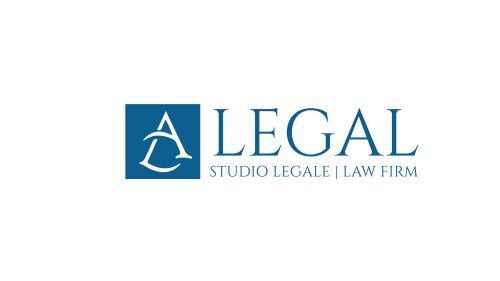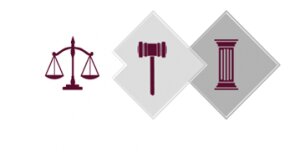Best Restructuring & Insolvency Lawyers in Thailand
Share your needs with us, get contacted by law firms.
Free. Takes 2 min.
Or refine your search by selecting a city:
List of the best lawyers in Thailand
Legal guides written by SIAM LEGAL INTERNATIONAL:
- Defamation Laws in Thailand: Criminal Charges and Civil Suits
- The State of Thailand’s Long-Term Resident (LTR) Visa Program in 2025
- The Penalties Of Not Filing Your Income Tax Return As A Foreigner In Thailand
About Restructuring & Insolvency Law in Thailand
Restructuring and insolvency law in Thailand refers to the legal processes and frameworks designed to help financially distressed businesses and individuals manage debt, recover from financial difficulty, or, if necessary, facilitate an organized exit from the market. The focus is on protecting creditors’ rights, supporting debtors in distress, and balancing the interests of all parties involved. This area of law encompasses negotiations, formal court processes, and other mechanisms aimed at debt rehabilitation or liquidation. Thailand’s legal system seeks to provide clarity, efficiency, and fairness throughout these proceedings, benefitting both domestic and international stakeholders.
Why You May Need a Lawyer
There are many scenarios where seeking legal advice in the field of restructuring and insolvency is crucial. Common situations include:
- Your business is facing serious cash flow problems and may not be able to meet its financial obligations.
- You received threats of court action, bankruptcy filings, or demands from creditors.
- You are a creditor seeking repayment from a debtor who is in financial distress or has commenced insolvency proceedings.
- You wish to negotiate new terms with creditors, restructure loans, or renegotiate contracts.
- You need guidance on actors’ rights and obligations under Thai law, whether you are a shareholder, creditor, or company director.
- You are involved in cross-border transactions and need to understand how Thailand’s laws interact with foreign insolvency proceedings.
Lawyers provide critical support by interpreting complex local regulations, representing your interests in negotiations or court, helping you avoid losses, and ensuring compliance with all applicable laws.
Local Laws Overview
Thailand’s approach to restructuring and insolvency is primarily governed by the Bankruptcy Act B.E. 2483 (1940) and its subsequent amendments. Key aspects to be aware of include:
- Bankruptcy proceedings can be initiated by debtors or creditors, but specific monetary thresholds must be met.
- Business reorganization, known as “rehabilitation,” allows companies to restructure debts under court supervision while continuing operations.
- Once rehabilitation is approved, a legal moratorium prevents creditors from enforcing most claims outside the court process.
- Legal processes are overseen by the Central Bankruptcy Court, which has the authority to approve and supervise cases across Thailand.
- The Official Receiver, a government agency, plays a pivotal role in administering both liquidation and rehabilitation proceedings.
- Specific procedures apply for cross-border insolvency issues, but Thailand is not yet a member of the UNCITRAL Model Law on Cross-Border Insolvency framework.
- Settlements and asset sales conducted within a defined period prior to bankruptcy may be voidable to protect creditors from unfair preference.
- Individuals can also enter into bankruptcy proceedings, affecting their rights and obligations for a statutorily prescribed period.
Thailand’s insolvency and restructuring regime is continually developing, adapting to global standards, and offering viable options for both distressed businesses and their creditors.
Frequently Asked Questions
What is corporate rehabilitation under Thai law?
Corporate rehabilitation is a formal legal process that allows financially distressed companies to restructure their debts, reorganize operations, and continue trading under the supervision of the Central Bankruptcy Court.
Who can initiate bankruptcy or rehabilitation proceedings in Thailand?
Both creditors and debtors can initiate bankruptcy or rehabilitation proceedings, provided the legal criteria (such as debt amount and evidence of insolvency) are satisfied.
What is the role of the Official Receiver?
The Official Receiver is a government-appointed officer responsible for overseeing bankruptcy and business rehabilitation proceedings, ensuring fair process and compliance with the law.
How long does a business rehabilitation process typically take?
The timeframe varies widely depending on the complexity of the company’s situation, but proceedings often last one to three years or longer, depending on stakeholder cooperation and court schedules.
What protections do debtors receive upon entering rehabilitation?
A moratorium on creditor claims is imposed, preventing the enforcement of most debts and allowing the company time and space to develop a restructuring plan.
Can foreign creditors participate in bankruptcy or rehabilitation cases?
Yes, foreign creditors have the same rights as domestic creditors in Thai bankruptcy and rehabilitation cases, subject to procedural rules of the court.
What happens to company directors during insolvency proceedings?
Directors may remain in office but are subject to court and Official Receiver supervision and must act in accordance with the rehabilitation plan and Thai law.
Are there criminal penalties for wrongful or fraudulent conduct in insolvency?
Yes. Thai law imposes criminal penalties for fraudulent conveyances, false statements, asset concealment, or other misconduct related to insolvency.
How are assets distributed in a bankruptcy?
Asset distribution follows a statutory order: first to secured creditors, then employees, government debts, and finally unsecured creditors, subject to any court-approved compromises.
Is personal bankruptcy possible for individuals in Thailand?
Yes. Individuals can be declared bankrupt under Thai law if they meet certain thresholds, leading to restrictions on financial activities and obligations to report to the Official Receiver.
Additional Resources
If you need more information or assistance, consider contacting the following organizations:
- The Central Bankruptcy Court - Primary court handling all restructuring and insolvency cases in Thailand.
- The Office of the Official Receiver - Responsible for supervising and administering bankruptcy and rehabilitation proceedings.
- The Legal Execution Department - Supports enforcement of court orders and asset recovery.
- The Lawyers Council of Thailand - Offers listings of licensed law practitioners who specialize in restructuring and insolvency matters.
- Thai Chamber of Commerce and Board of Trade - Provides business advisory services, including legal resources for distressed businesses.
Next Steps
If you are facing financial distress, have received legal claims from creditors, or need to understand your position in a Thai restructuring or insolvency scenario, consider the following steps:
- Collect and organize all relevant documents, such as contracts, loan agreements, and financial statements.
- Seek preliminary advice from a qualified lawyer who specializes in restructuring and insolvency in Thailand.
- Attend consultations to evaluate your options, whether debt restructuring, entering into a court-supervised process, or pursuing an out-of-court settlement.
- Discuss all potential legal, financial, and operational impacts with your lawyer.
- Follow all legal guidelines and maintain open communication with stakeholders to protect your interests throughout the process.
Early legal intervention often helps prevent further complications, protects your assets, and gives you the best chance of achieving a positive outcome under Thai law.
Lawzana helps you find the best lawyers and law firms in Thailand through a curated and pre-screened list of qualified legal professionals. Our platform offers rankings and detailed profiles of attorneys and law firms, allowing you to compare based on practice areas, including Restructuring & Insolvency, experience, and client feedback.
Each profile includes a description of the firm's areas of practice, client reviews, team members and partners, year of establishment, spoken languages, office locations, contact information, social media presence, and any published articles or resources. Most firms on our platform speak English and are experienced in both local and international legal matters.
Get a quote from top-rated law firms in Thailand — quickly, securely, and without unnecessary hassle.
Disclaimer:
The information provided on this page is for general informational purposes only and does not constitute legal advice. While we strive to ensure the accuracy and relevance of the content, legal information may change over time, and interpretations of the law can vary. You should always consult with a qualified legal professional for advice specific to your situation.
We disclaim all liability for actions taken or not taken based on the content of this page. If you believe any information is incorrect or outdated, please contact us, and we will review and update it where appropriate.
Browse restructuring & insolvency law firms by city in Thailand
Refine your search by selecting a city.

















